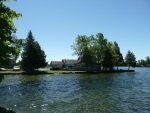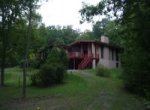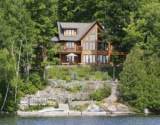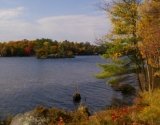Capital Gains Tax in Canada
Selling your Cottage, a few things about Capital Gains!
They are the taxes that many cottage owners do not think of!
This is a profit from an investment in an asset such as stocks, bonds and Real Estate. The profit being greater than the purchase price.
An important issue here is that many families thought this is a tax only for the wealthy.

Your principal residence and RRSP's have quietly increased in value over the years. When you start to withdraw from your RRSP's, it is in small amounts only minimizing the tax bite.
Upon the sale or 'disposal' of a significant asset such as your cottage, the tax bite happens all at once!
Your family cottage falls under the Real Estate part and is why your family needs to be concerned and explore your options now!
Many years ago when you purchased your cottage you never thought of it as an investment, it was only a treasured retreat for your family.
Today because of the tremendous value increase of cottage Real Estate Values this property is now subject to the Canadian Capital Gains Tax Laws.
The tremendous tax implications, especially in cottage succession, result in many families to sell their properties to cover the costs of the taxes imposed.
You really should start your succession planning now!
Properties purchased before 1971 need the value at this date applied, an appraiser can determine this.
NOTE: Was the Tax Exemption taken in 1994?
Your Agent has determined that your property is worth $500,000.
If you now sold your cottage today, or the owner passed away, the resulting Gain would be $500,000-$250,000=$250,000
Next is called the inclusion rate at 50%, meaning you pay taxes on one half of the gain. $250,000 x 50%= $125,000
So by today's laws, the $125,000 would be taxed and at a marginal rate of 40% you would owe $50,000 in taxes!
Can you claim you cottage as your principal residence?
If your cottage has gained more in value than your home this is a strategy you may want to consider. As our principal residences are not subject to capital gains taxes it may offer you an opportunity for capital gains tax relief.
There are a variety of options to minimize the impact of these taxes.
In all cases you need to talk with experts familiar with cottage succession strategies.
Cottage for Sale- Home

BIG RIDEAU LAKE
3276 MacDonald Island Road

1473 North Shore Road Kingston


BUYER PROGRAM
